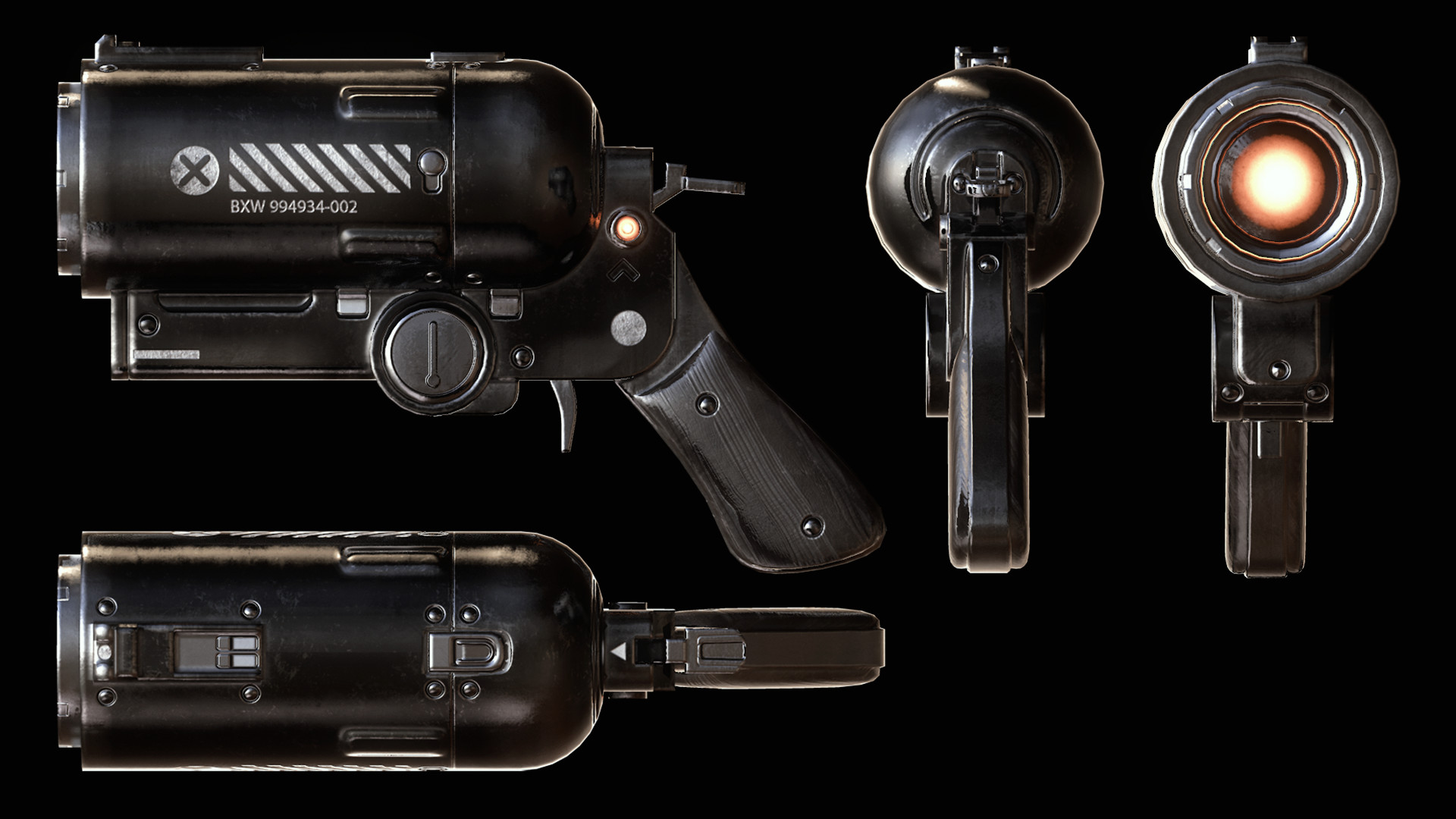We're just innocent men

OUT OF CHARACTER INFORMATION
- Intent: A unique pistol as the Winner's Cup grand prize for
 Scherezade deWinter
at a prestigious gunslinger contest on Zonju V.
Scherezade deWinter
at a prestigious gunslinger contest on Zonju V. - Image Source: Sergey Tyapkin
- Canon Link: N/A
- Permissions: N/A
- Primary Source: Shield leech weapon
PRODUCTION INFORMATION
- Manufacturer: Outer Planets Alliance (Qektoth Confederation)
- Affiliation: Scherezade deWinter
- Model: The Parasite
- Modularity: No
- Production: Unique
- Material: Durasteel, electronics
TECHNICAL SPECIFICATIONS
- Classification: Exotic pistol
- Size: Large
- Weight: Heavy
- Ammunition Type: Power cells
- Ammunition Capacity: Low (6 shots)
- Effective Range: Battlefield
- Rate of Fire: Average
- Stopping Power: Extreme (against shields), Low (against other things)
- Recoil: High
SPECIAL FEATURES
- Fires a shield leach beam.
STRENGTHS
- Will rapidly wear down or tear through many kinds of shields, even molecular shields, which cannot take energy from the beam.
- Battlefield range, if properly stabilized or pointed at a large enough target.
- Can shunt stolen energy to other equipment through a cord.
- Low ammunition capacity.
- Bulky.
- Low damage against things that aren't shields.
- Will burn out with sustained use if it doesn't have somewhere to shunt the stolen energy.
The marauder and weapons collector Scherezade deWinter won this pistol in a gunslinger contest on Zonju V. The disreputable Rodian who handed it over said its name was the Parasite. At some point, an unknown Qektoth inventor miniaturized a shield leech weapon from capital scale down to pistol form. The resulting weapon is pretty great at stripping away or punching through personal shields or even larger ones. Against flesh or armor, the Parasite's beam will hit like a light blaster pistol.
If the Parasite is hooked up to something that can take or dispose of a serious power influx, it could theoretically drain even facility-grade shielding in an hour or two of uninterrupted use. It would take, at a guess, a couple of decades to harm planetary shielding, and would probably burn out before then no matter what it was hooked up to.







